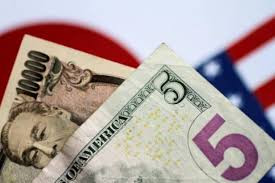Japan's heavily export-oriented economy has been battered for the eighth straight month by steadily falling monthly exports, igniting fears of an impending economic recession.
Responsible for the weakness is Trump's trade war against China, which is making it harder for exports to stage a recovery.
Japan's exports for July dropped 1.6% year-on-year, according to Ministry of Finance released Monday. Much of the fall was due to a drop in exports to China of car parts and semiconductor production equipment. That compared with a 2.2% slowdown expected by economists.
The ministry said the export slowdown in July was the eighth longest consecutive monthly decline in exports from October 2015 to November 2016, a 14 month-long span.
Exports to China, Japan's biggest trading partner, plummeted 9.3% year-on-year in July. This was the fifth straight month for this decline. Exports of semiconductor production equipment plunged a massive 31.5%; car parts exports plummeted 35% while electronics parts exports shed 19%.
Exports to Asia, which account for more than half of Japan's overall exports, declined 8.3% year-on-year in July.
Anxiety in Japan about a global economic slowdown rose to fever pitch last week after an inversion in the U.S. Treasury yield curve suggested a growing risk of a recession in the U.S. More bad news came from Germany, whose economy is contracting. China's already battered economy is worsening.
Export-dependent economies such as Japan have been heavily hit by Trump's trade war against China. This trade war has also disorganized global supply chains and undermined global trade, investment and corporate earnings.
Adding to Japan's ongoing export gloom is the steady erosion of confidence among the business community. A Reuters Tankan survey showed business confidence among Japanese manufacturers turning negative in August for the first time since April 2013.
"My impression is that the year-on-year rise in the export volume was slightly stronger than expected. That's a positive as falling exports is the biggest issue faced by the Japanese economy," noted Taro Saito, executive research fellow at NLI Research Institute, a think-tank based in Tokyo.
"But it'll be hard for exports to recover going forward, since there's no solution in sight for the U.S.-China trade war, and the global economy and manufacturing remain weak."
The gloomy export numbers stand in stark contrast to a slightly rosier outlook for the Japanese economy, which felt a welcome improvement in the second quarter. For example, export volume rose 1.5% in July year-on-year, the first positive outcome in nine months.
Japan's GDP grew faster than expected from April to June. This uptick represents the third straight quarter of expansion driven by still-strong domestic consumption and business investment. These positive outcomes helped offset the disheartening news on the export front.
Japan's traditionally vibrant service sector also remained on firm footing despite turmoil overseas triggered by Trump's trade war.






